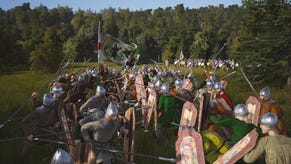China's "gold farming ban" misinterpreted
Bans buying real with virtual, not vice versa.
An authority on the trade in virtual items and currencies has discredited claims earlier this week that the Chinese government had banned gold farming.
On his ICTs for Development blog, Professor Richard Heeks of Manchester University interprets the move as an attempt to restrict the use of virtual currencies - used widely in Chinese internet portals - to buy real goods and services, particularly gambling. In fact, that's the opposite of gold trading, which is the use of real currency to buy virtual goods and services.
"This is a government restriction on the use of the quasi-Paypal-like currencies (mainly QQ coins) that are used extensively in China to pay for virtual game stuff. As announced they can now only be used to pay for virtual stuff, and you can't buy real things with them as game companies were allowing to happen, nor can you gamble," said Heeks.
"This therefore is not about what gold farming clients do: use real money to buy these virtual currencies; it's the mirror image. And it's not about the major trade in gold farming such as World of Warcraft, which relates to other types of virtual currency. And it's not about buying/selling in-game items. And it's not about the power-levelling of avatars. Bottom line: it's not about gold farming."
So the multi-billion dollar grey market in MMO currencies and services is safe for now, it seems. To learn more about the business, read Eurogamer's recent four-part series, Gold Trading Exposed: Introduction, The Sellers, The Players, and The Developers.








